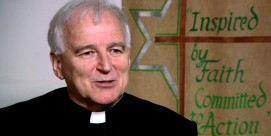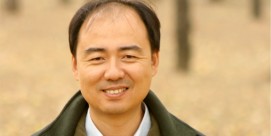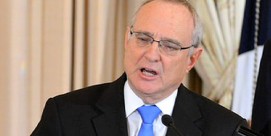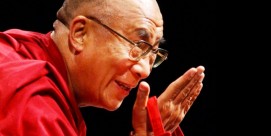In This Episode << SLIDE LEFT TO SEE ADDITIONAL SEGMENTS
Tensions in Chinese/U.S. Relations
BOB ABERNETHY: This week marked the 10th anniversary of the Tiananmen Square massacre, when the Chinese army broke up the student-led democracy protests with tanks and gunfire. The anniversary comes amid new tensions between China and the U.S. Correspondent Kim Lawton has our report on how human rights, including religious liberty, may be affected.

KIM LAWTON: The images from a decade ago still haunt: the euphoric demonstration for freedom and democracy and the brutal crackdown that killed hundreds, perhaps thousands of unarmed people. The world was outraged.
Today, U.S.-Sino relations are again at a low point, sparked by the mistaken bombing of the Chinese embassy in Belgrade and charges that China stole nuclear secrets. Some activists are concerned the tense political situation will pose increased difficulties for advocacy and human rights, such as religious freedom.
Rabbi ARTHUR SCHNEIER (Appeal of Conscience Foundation): Nothing happens without the overall political climate.
LAWTON: In China, millions of believers are allowed to worship in government-approved settings, as long as they submit to regulations. Catholics, for example, cannot give allegiance to the pope. But millions of others are not willing to submit. They worship in the underground, risking arrest, imprisonment, and torture.

Ms. NINA SHEA (Freedom House): The persecution is intense; it’s gotten worse in the last year. There’s been a crackdown, as even the U.S. State Department has acknowledged over the past year. But it’s been intense all along for religious believers.
LAWTON: Nina Shea advises the State Department on religious freedom.
Ms. SHEA: There’s also a reluctance, I think, on the part of the U.S. government officials, and there has been, to offend the Chinese. They don’t want to bring up unpleasant things like human rights. And I’m concerned that human rights is gonna be swept away in any negotiations.
LAWTON: Rabbi Arthur Schneier has long advocated better relations as the best way to achieve more religious freedom. He says despite new political tensions, that must continue.
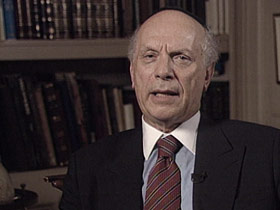
Rabbi SCHNEIER: We have to walk through this particular time and hope that we can really move forward in every aspect of our relationship.
LAWTON: But some worry that in the push to enhance business and strategic relations, human rights may be left behind.
Mr. SHEA: We just have to give them fair criticism and also represent our point of view. We should not, you know, check our values at the — at the port of call in China.
LAWTON: Ten years after Tiananmen Square, human rights, including religious rights, remains a potentially explosive problem for China’s Communist leaders and, for the nation’s religious believers, a still dangerous vocation. I’m Kim Lawton reporting.


